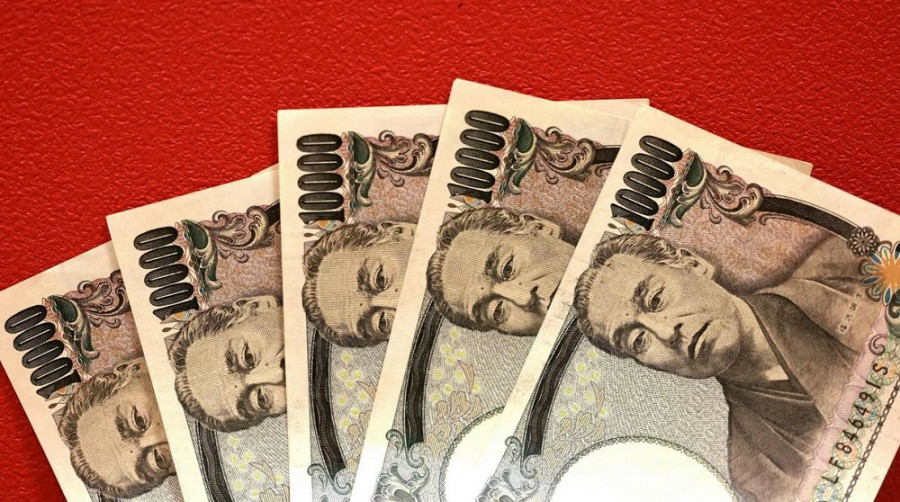Last week, the USD/JPY pair dropped precisely 500 pips, with an opening price of 154.72 and a closing price of 149.72. This significant decline was fueled by a weaker dollar and a strengthening yen, underpinned by accelerating inflation in Japan's capital city.
This week, the downward trend has stalled but not stopped. Bearish sentiment continues to dominate the pair, with traders testing the 148 level for the first time since early October. For perspective, the pair was nearing the 157 price range just three weeks ago, marking an almost 1,000-pip drop within a month—a remarkable result that may not yet be the limit. An impressive result.

The next support lies at 148.60 (lower Bollinger Bands line on the 4-hour chart), followed by 146.70 (lower Kumo cloud boundary on the daily chart). Without intervention from Powell or the nonfarm payrolls report, the pair could test the 146 level this month. The primary driver of USD/JPY's downward momentum is the growing divergence in the monetary policies of the Federal Reserve and the Bank of Japan. The market increasingly believes that the Fed will cut its interest rate by 25 basis points this month while the BOJ may hike its rate by the same amount.
However, traders are almost certain that the Fed will cut the interest rate this month. The central bank will save the pause option for next year when Donald Trump officially becomes the 47th President of the United States.
Nonfarms and inflation reports (market growth data will be published this Friday, and CPI and PPI growth data next week) could tip the scales in favor of a December pause, but at the moment, the baseline scenario is a 25-basis point rate cut.
However, the likely scenario for the BOJ's December meeting is a 25-basis-point rate hike. Several arguments favor this scenario.
First is inflation. Nationwide data on CPI growth in Japan for November will be released after the December meeting of the BOJ (literally the next day). However, central bank members will have the November Tokyo Consumer Price Index at their disposal, considered a leading indicator for determining price dynamics across the country. And that indicator signals accelerating inflation. For example, Tokyo's overall CPI had been downward for the previous two months, hitting 1.8%. But in November, the growth rate accelerated to 2.6% (with a forecast of 2.2%). Tokyo's core CPI, excluding fresh food prices, had also declined over the previous two months but accelerated more strongly than expected in November to 2.2% (from a forecast of 2.0%).
The second argument favoring a BOJ rate hike in December is the rhetoric of the central bank's head, Kazuo Ueda. On Saturday, he said the next interest rate hike is "close," citing supportive economic data. In addition, he said, wage trends are key to further steps toward normalizing monetary policy. This important remark needs to be viewed through the prism of a recent statement by Japanese Prime Minister Shigeru Ishiba, who called for significant wage increases during the next "shunto" (i.e., spring talks with labor unions) in 2025.
According to a recent Reuters survey, 56% of economists expect the BOJ to raise rates in December, while 90% believe the central bank will hike rates to 0.50% by March 2025. The median forecast suggests a final rate of 1.00%.
The USD/JPY pair retains the potential for further declines. However, entering sell positions would be prudent only after the pair breaks through the nearest support level at 148.60 (lower Bollinger Bands line on the 4-hour chart). The next target for the southern move would be 148.00 (middle Bollinger Bands line on the weekly chart), with a breach opening the path to 146.70 (lower Kumo cloud boundary on the D1 timeframe).
The material has been provided by InstaForex Company - www.instaforex.comfrom Forex analysis review https://ift.tt/f0WxdJo
via IFTTT
